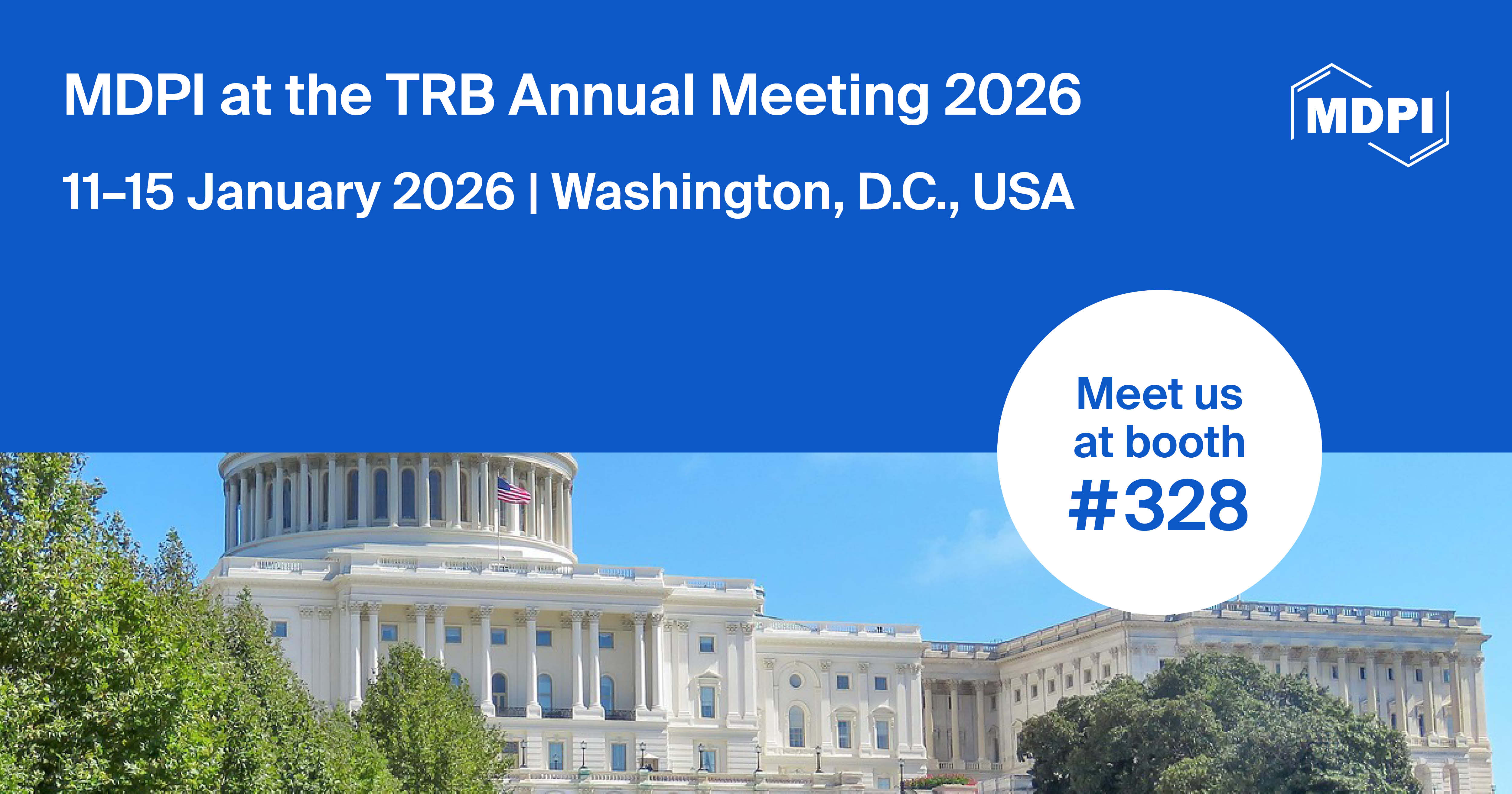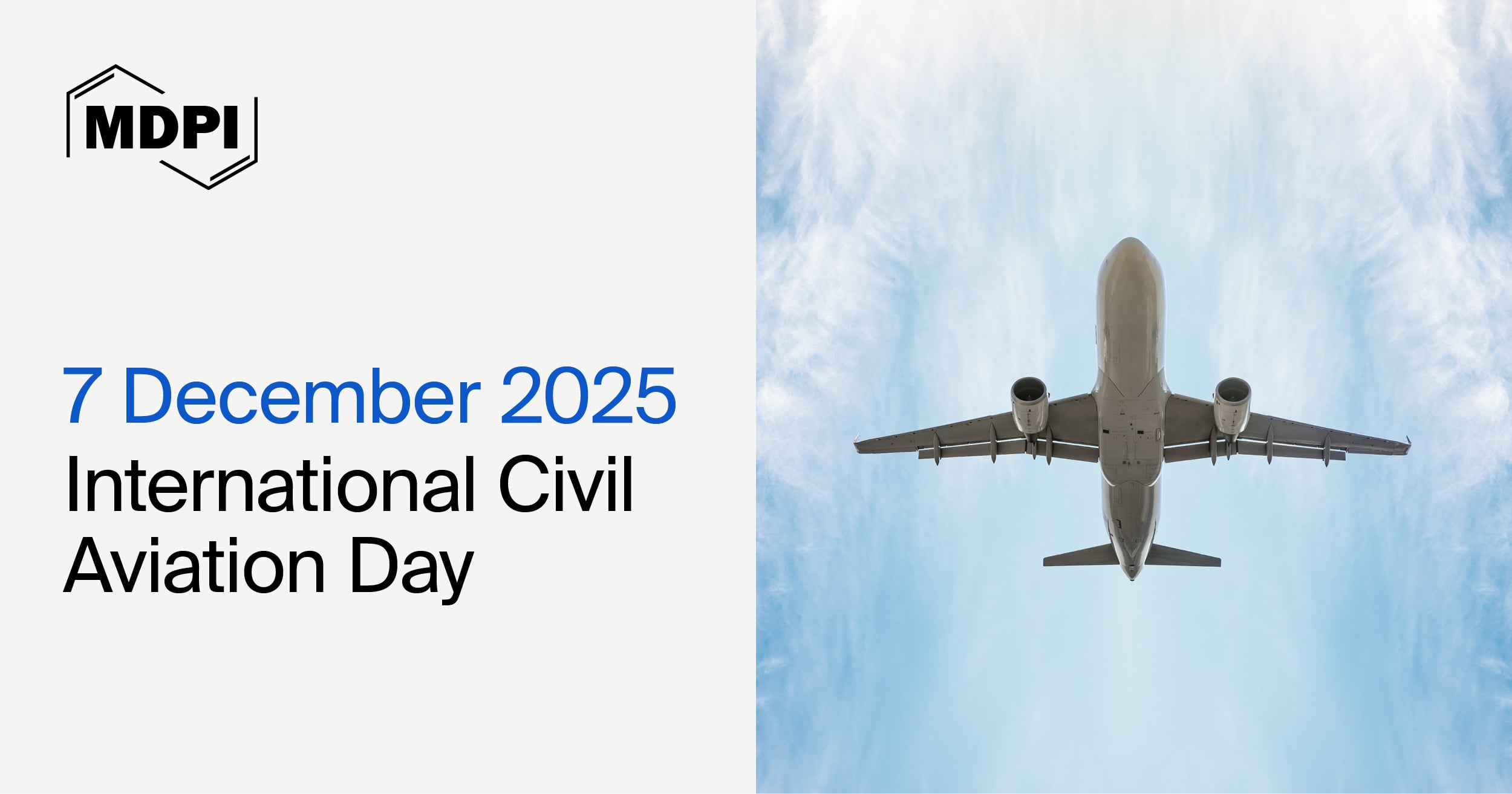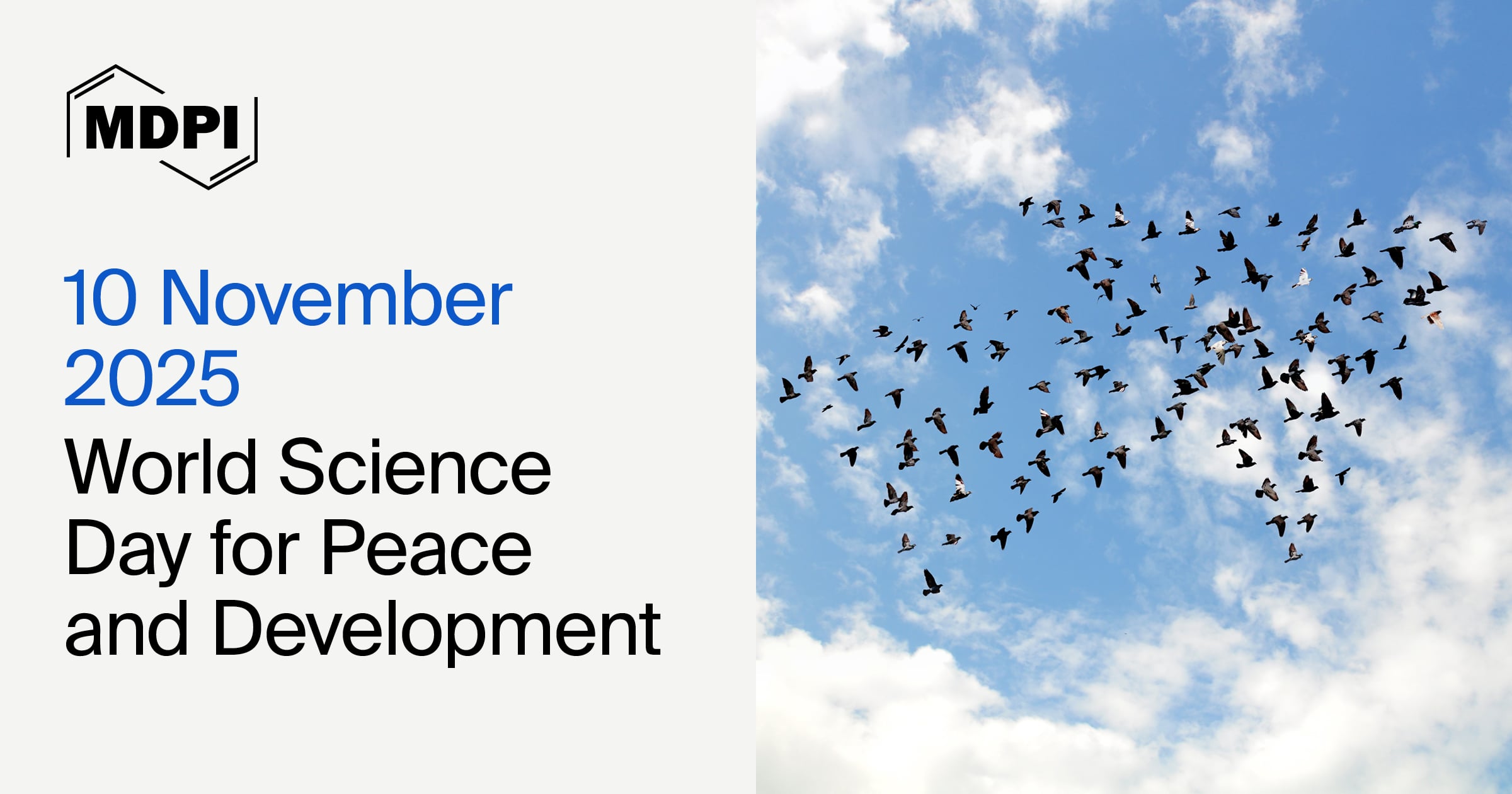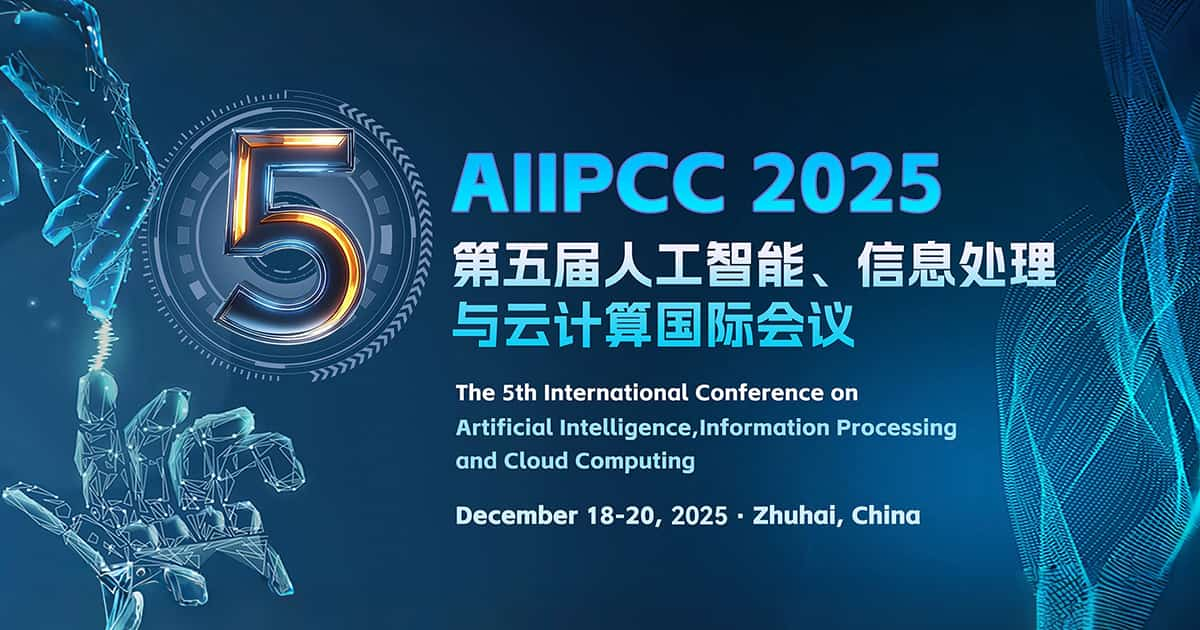- 3.6Impact Factor
- 8.5CiteScore
- 22 daysTime to First Decision
News & Conferences
Latest News & Announcements
Latest Conferences
Propose a Conference Collaboration
Promote and publicise your upcoming conference with MDPI.
All News & Conferences
News & Announcements
Meet Us at the Transportation Research Board (TRB) Annual Meeting 2026, 11–15 January 2026, Washington, D.C., USA
17 December 2025
News & Announcements
Technologies | Selected Papers on Visual Recognition Published in 2024–2025
15 December 2025
News & Announcements
Article Layout and Template Revised for Future Volumes
11 December 2025
News & Announcements
International Civil Aviation Day, 7 December 2025
5 December 2025
News & Announcements
World Sustainable Transport Day, 26 November 2025
26 November 2025
News & Announcements
World Science Day for Peace and Development, 10 November 2025
10 November 2025
News & Announcements
MDPI Launches the Michele Parrinello Award for Pioneering Contributions in Computational Physical Science
6 November 2025
News & Announcements
MDPI INSIGHTS: The CEO's Letter #28 - WSF11, Nobel Laureates, Proofig AI, Romania Summit, STM and FBF
4 November 2025
Partner Conference
The 5th International Conference on Artificial Intelligence, Information Processing and Cloud Computing (AIIPCC 2025)
18 - 20 December 2025
News & Announcements
Technologies | Selected Papers Published in 2024–2025 on Computer Vision and Graphics
21 October 2025
News & Announcements
MDPI’s Newly Launched Journals in September 2025
15 October 2025
News & Announcements
Meet Us at the 1st Online Conference on Technologies, 11–13 November 2026
10 October 2025
of 21











